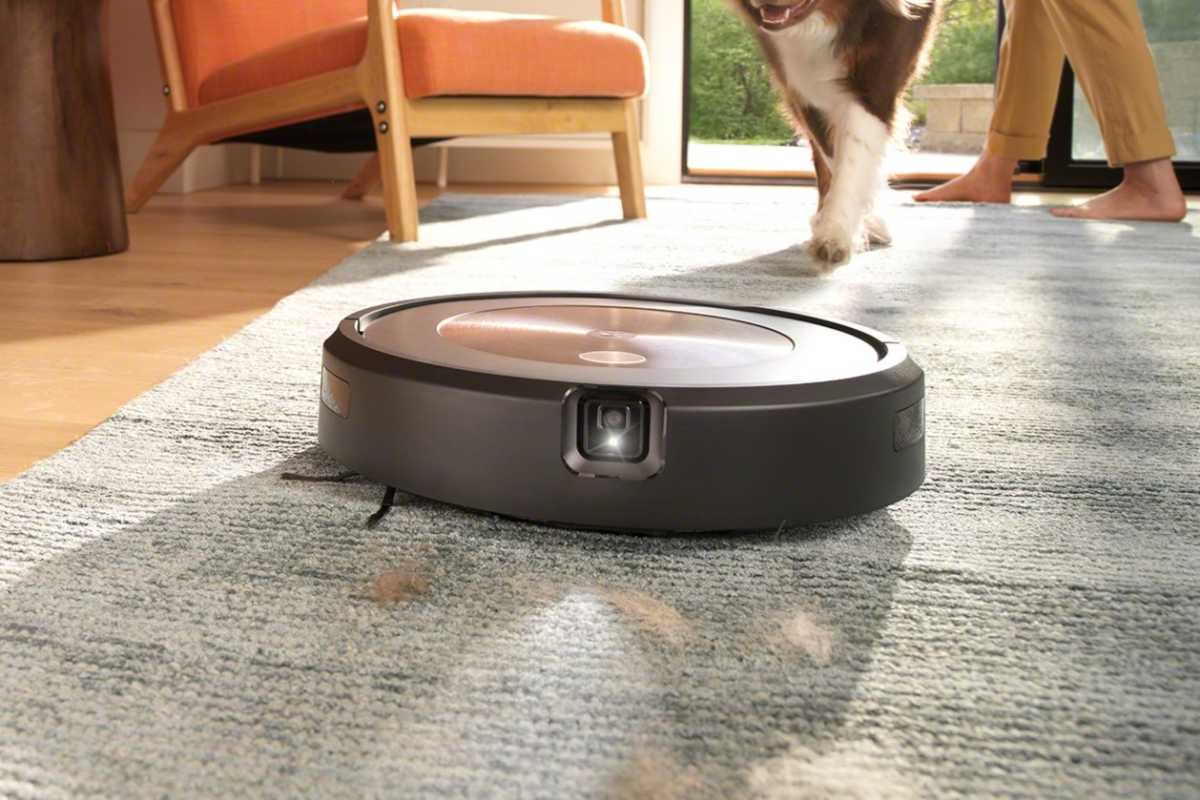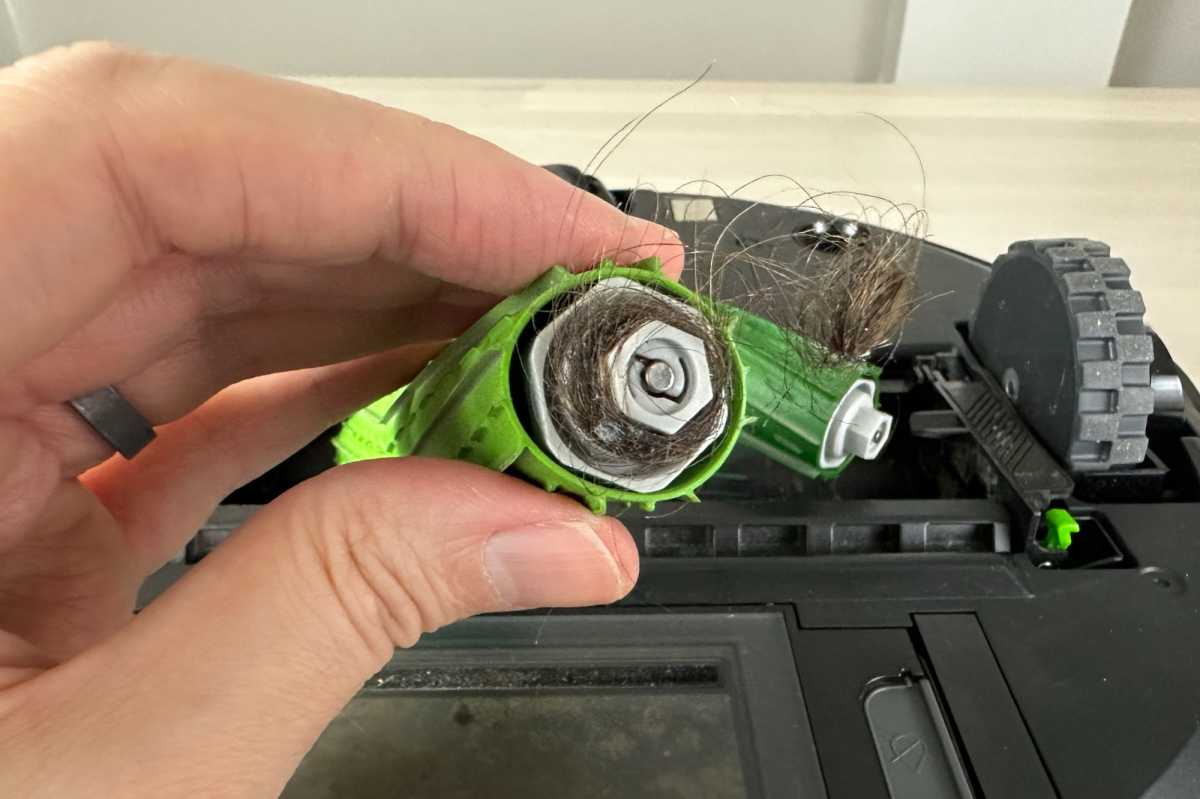Robot vacuums have become a staple in many homes, offering a convenient way to keep floors clean with minimal effort. But getting the most out of your robot vacuum isn’t as simple as pressing “start” and walking away.
A little strategy is needed to enhance its performance, extend its lifespan, and ensure your floors are as clean as possible.
Whether you’re a new owner or a seasoned user, these practical tips will help you maximize your robot vacuum’s effectiveness and make it a trusted household helper.
Tip #1: Place the charging dock in an accessible location
It might seem like a small detail, but the location of your robot vacuum’s charging dock can make a huge difference in terms of battery life and cleaning efficiency.
Place the charging dock in an open, accessible area where the vacuum can easily return to recharge. Avoid placing it in tight corners or behind furniture, where the vacuum might struggle to get in and out or find its way back.
By giving it a clear path to the dock, you ensure that your vacuum is always charged and ready to go when you need it.
Michael Ansaldo/Foundry
Tip #2: Declutter and secure loose cables before cleaning
Robot vacuums are designed to navigate around your home autonomously, but they aren’t always adept at dodging clutter.
Before you send your vacuum to work, take a few minutes to pick up any loose items like toys, clothes, or cables that might be lying on the floor. These obstacles can cause your vacuum to get stuck or even damage the device.
Further reading: From bump to SLAM: Robot vacuum navigation tech explained
Securing loose cables is particularly important, as they can easily get tangled in the vacuum’s brushes, potentially causing malfunctions.
Decluttering your space before each cleaning will not only prevent interruptions, but it will also allow the vacuum to move more freely, resulting in a more thorough clean.

iRobot
Tip #3: Use virtual barriers and no-go zones
Many robot vacuums come equipped with smart mapping technology and the ability to set virtual barriers or no-go zones through their companion apps. These features are incredibly useful for protecting delicate items or keeping the vacuum out of areas where it might get stuck.
For instance, if you have a room with lots of tight spaces or fragile objects, you can set up a virtual barrier to prevent the vacuum from entering that area.
This not only helps avoid potential mishaps but also ensures that your vacuum can focus on cleaning the areas that matter most without unnecessary interruptions.
Tip #4: Schedule strategically for optimal cleaning
A convenient feature of most robot vacuums is the ability to schedule cleanings. It works best if you think strategically about when your vacuum should be running.
In most cases, the best time to schedule cleanings is during periods when your home sees the least foot traffic—this could be when you’re out of the house for work, or during the night when everyone is asleep.
By scheduling your vacuum to clean during these low-traffic times, you minimize the chances of it being interrupted or needing to dodge obstacles, leading to a more efficient and thorough cleaning session.
Additionally, if you have pets, scheduling cleanings at times when they’re less active can prevent the vacuum from getting tangled in pet toys or encountering accidents.
The key is to align the cleaning schedule with your household’s routine to ensure the vacuum can work uninterrupted, leaving your floors spotless without you even noticing it’s been at work.
Tip #5: Adapt cleaning modes to different floor types
Most robot vacuums boast cleaning modes that can be tailored to different surfaces, such as carpets, hardwood, or tile. It’s crucial to utilize these modes according to your specific flooring.
On carpets, for example, you might want to select a mode with stronger suction to pull dirt and debris out of the fibers. On hardwood or tile, a gentler mode with a slower brush speed might be more appropriate to avoid scratches while still picking up dust and debris effectively.
Some advanced models can automatically detect the type of surface they’re cleaning and adjust the mode accordingly. However, if your vacuum doesn’t have this feature, taking a few moments to manually switch modes can make a big difference in cleaning quality.
Tip #6: Determine your ideal cleaning frequency
Finding the right cleaning frequency for your home depends on several factors, including the size of your household, the presence of pets, and the amount of foot traffic your floors receive. There’s no universal solution, but here are some general guidelines:
- Daily cleaning: If you have pets, suffer from allergies, or your home experiences high foot traffic, daily cleaning is ideal. This routine helps to keep pet hair, allergens, and dirt at bay, ensuring that your floors are consistently clean, and your robot vacuum doesn’t get overtaxed by high debris levels.
- Every other day: For homes with moderate activity levels and no pets, cleaning every other day can be sufficient. This schedule helps keep your home clean while also preserving the battery and extending the lifespan of your vacuum.
- Weekly cleaning: If your home has low activity levels or there are areas that are used infrequently, a weekly cleaning might be all that’s needed. This approach works well for guest rooms, formal living areas, or other spaces that don’t see daily use.
Remember, more frequent cleaning doesn’t necessarily mean better. It’s about finding the right balance to keep your home clean without overworking your vacuum.
Tip #7: Keep brushes and filters clean
It’s important to perform regular maintenance to keep your robot vacuum running smoothly. Over time, the brushes and filters of your vacuum will accumulate dust, hair, and other debris, which can hinder its performance if not cleaned properly.
Most manufacturers recommend cleaning the brushes and filters at least once a week, but this can vary depending on how often you use the vacuum and the conditions in your home.

Regular maintenance of your robot vacuum’s brushes and other components is essential to keep it cleaning effectively.
Ben Patterson/Foundry
Start by removing the brushes and clearing any hair or fibers that have wrapped around them. For the filters, tapping them out to remove loose dust or rinsing them (if washable) can help maintain strong suction power. It’s also a good idea to check the manufacturer’s guidelines for any specific maintenance tips.
Further reading: Your Roomba is filthy. Here’s how to get it completely clean
Regular upkeep of these components will extend the lifespan of your vacuum and ensure it continues to clean your home as efficiently as possible.
Tip# 8: Don’t forget smart mapping and learning features
Many of the latest robot vacuums come equipped with advanced smart mapping and learning capabilities. These features allow your vacuum to create a detailed map of your home over time, which it then uses to navigate more efficiently. By taking full advantage of these features, you can significantly enhance your vacuum’s cleaning performance.
For instance, once your vacuum has mapped your home, you can set specific cleaning zones or direct the vacuum to clean a particular room or area. This is especially useful if you only need to clean a high-traffic area like the kitchen or living room without having the vacuum clean the entire house. Smart mapping also allows the vacuum to remember obstacles, reducing the chances of it bumping into them or getting stuck.
Some models even allow you to save multiple maps, making them ideal for multi-level homes. This way, you can move the vacuum to a different floor, and it will know exactly where to clean without needing to remap the area.
The more your vacuum learns about your home’s layout, the better it becomes at navigating efficiently and covering every inch of your floors.
The final sweep
Embracing the convenience of a robot vacuum is about more than just automating your cleaning routine—it’s about enhancing the way you maintain your home.
By approaching your vacuum’s usage with a bit of strategy, you can unlock its full potential and enjoy a home that’s consistently clean without the usual hassle.
As you experiment with different settings, schedules, and features, you’ll likely discover new ways your vacuum can work for you and be a better ally in keeping your home tidy.



